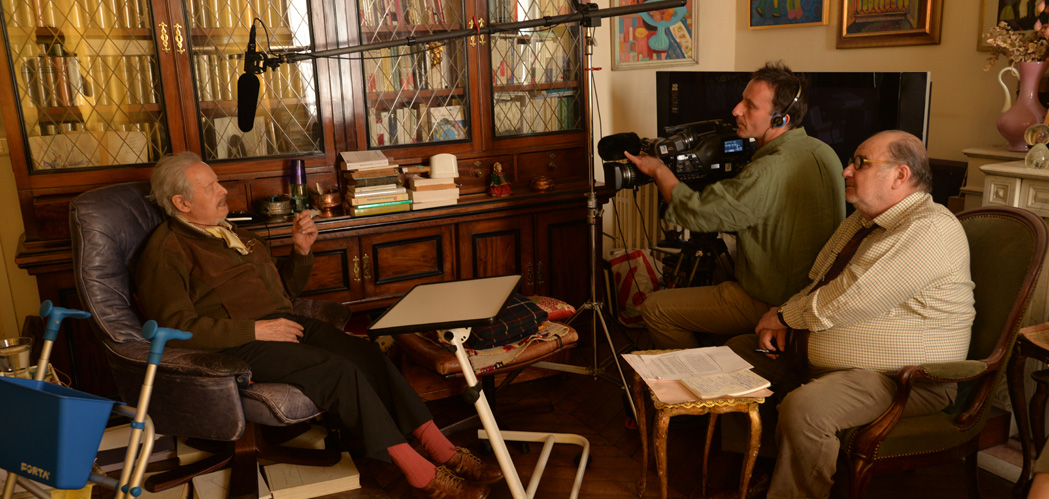2014 International Conference Panel Spotlight: Oral History and Mediation

A different panel or roundtable at USC Shoah Foundation’s upcoming international conference, Memory, Media and Technology: Exploring the Trajectories of Schindler’s List, will be profiled each week.
The audiovisual testimonies of genocide survivors are often studied for the historical events described by the interviewees, but from these oral histories scholars have also gleaned fascinating insights about the transmission of memory, the process of giving testimony, and other topics. The “Oral History and Mediation” panel will present three unique research projects that each study a different aspect of giving and recording testimony.
The panel is chaired by Professor Wolf Gruner, director of the USC Shoah Foundation Center for Advanced Genocide Research. Gruner is the Shapell-Guerin Chair in Jewish Studies and professor of history at USC, where his research focuses on the Holocaust and other genocides and resistance to mass violence.
Associate Professor Peg LeVine, from the University of Melbourne and Monash University, will present her research “Accounting for Ritualcide in the Cambodian Genocide: Abduction of Children’s Imaginations in a Spirit-based Culture (Film Ethnography).” This paper is about LeVeine’s ethnographic film study in which she travelled with Cambodians to past ritual sites from the Khmer Rouge genocide period (1975-79). These Cambodians reflect about ‘spirit-distress,’ which is an example of Ritualcide, the systematic erosion of access to spirit rituals, places, objects, and physical-metaphysical arbitrators. LeVine found that children’s imaginations were “abducted” by this ritualcide; “they absorbed others’ fears as their own, and perceptions of “natural or unnatural” got distorted,” she says.
Christa Whitney is the director of the Wexler Oral History Project at the Yiddish Book Center in Amherst, Mass. She will present her research “How to Gracefully Conclude a Life Story for the Camera?: Issues of Identity Transmission, Narrative and Ethics in the Last Five Minutes of Filmed Oral Histories.” Whitney examines how European Jewish culture is transmitted to a new American generation through the “lesson for the future” reflection that often concludes Holocaust survivor narratives.
Finally, Mark Zaurov, from the University of Hamburg, will discuss what happens when testimony is recorded of deaf Holocaust survivors. Zaurov will explain the unique challenges faced by interviewers and interviewees and the vital role deaf interpreters play in the interviewing process. In addition, he will reveal common misinterpretations of deaf discrimination and culture during the Third Reich, perpetuated as a result of challenges in correctly archiving deaf testimonies.
Like this article? Get our e-newsletter.
Be the first to learn about new articles and personal stories like the one you've just read.